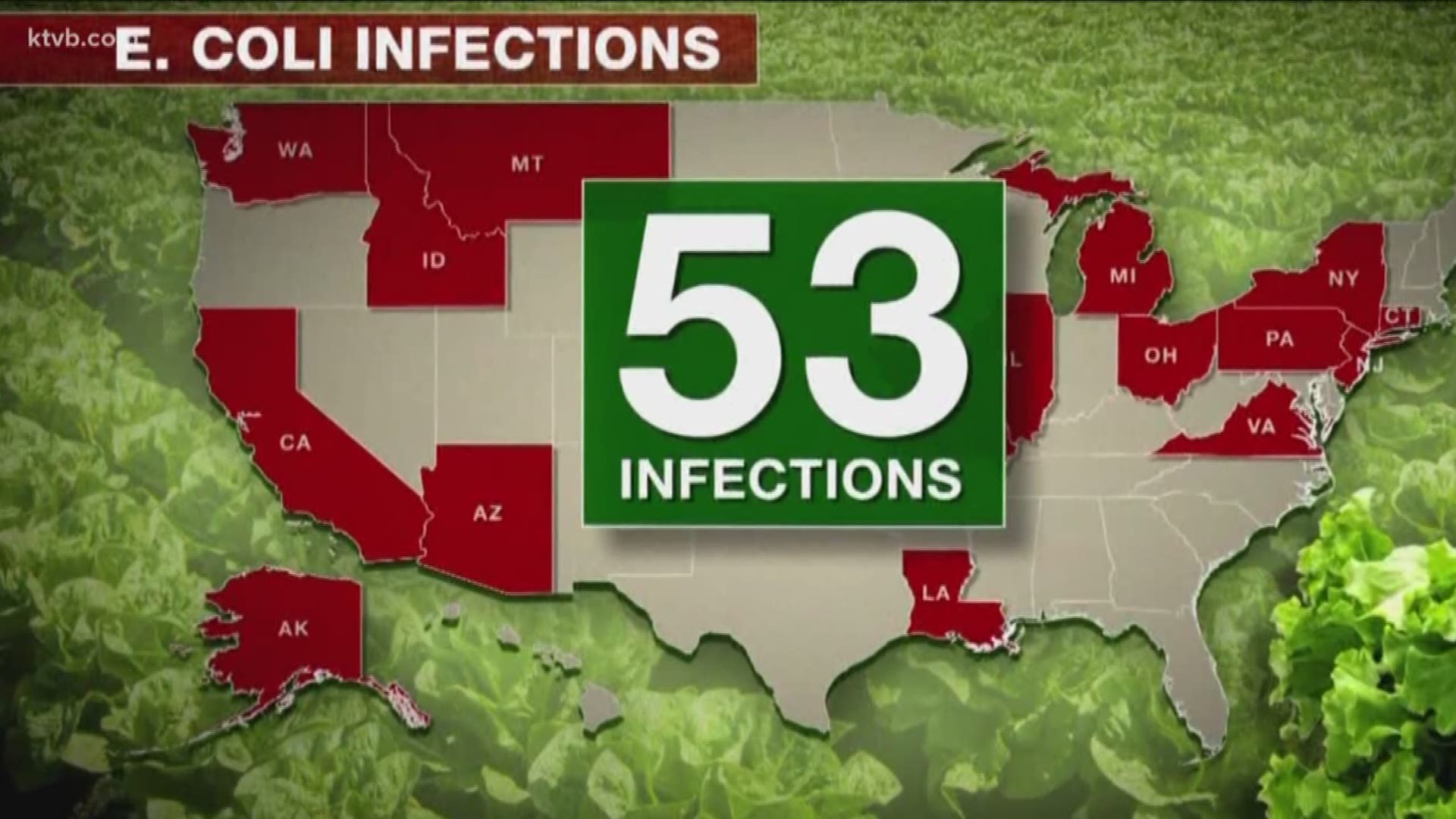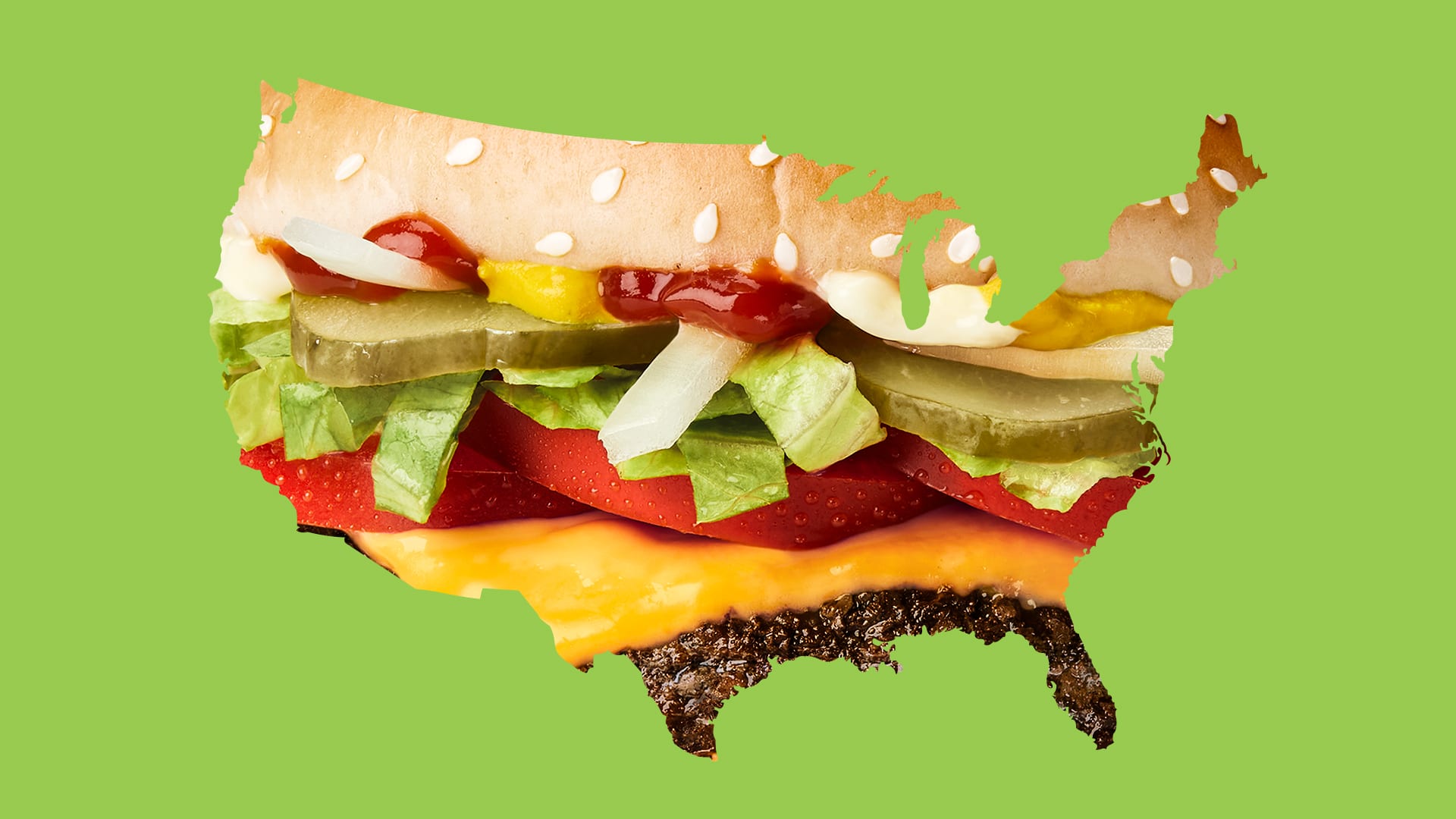Listen up, folks. E. coli outbreak Idaho has been making headlines, and if you're living in or planning a visit to the Gem State, this is some serious info you can't afford to ignore. E. coli isn’t just some random bacteria; it’s a potentially dangerous health threat that can affect anyone. From kids to adults, no one is immune. So, if you’ve been hearing whispers about this outbreak but haven’t dug into the details yet, now’s the time. Let’s break it down step by step so you’re armed with all the facts.
Now, I know what you're thinking: "Why should I care about E. coli in Idaho?" Well, here's the deal. Whether you're a local or just someone keeping tabs on public health trends, understanding how these outbreaks happen, where they're happening, and what you can do to stay safe is crucial. This isn't just about Idaho—it's about protecting yourself and your loved ones from a preventable illness.
And hey, don’t panic. The goal here isn’t to scare you, but to educate you. By the end of this article, you’ll know exactly what E. coli is, why it’s causing trouble in Idaho, and—most importantly—how to avoid getting sick. So grab a cup of coffee, settle in, and let’s dive deep into the world of E. coli outbreaks.
- Unmasking The Mystique Of Sophia Rain In The Spiderman Universe
- Unveiling The Personal Life Of Jasmine Crockett Does She Have Any Children
Understanding E. Coli: The Basics
First things first, what exactly is E. coli? It’s a type of bacteria that lives in the intestines of humans and animals. Most strains of E. coli are harmless, but some can cause serious illnesses. The strain we’re talking about in Idaho is the nasty one—E. coli O157:H7. This bad boy produces toxins that can lead to severe diarrhea, abdominal cramps, and even kidney failure in extreme cases.
Here’s the kicker: E. coli spreads through contaminated food, water, or contact with infected animals or people. Yep, you read that right. Something as simple as eating a salad or petting a cow at a farm could put you at risk if proper precautions aren’t taken. And let’s be real, who doesn’t love a good salad or a day out at the zoo?
How Does E. Coli Affect You?
When E. coli strikes, it doesn’t mess around. Symptoms usually show up within 3 to 4 days after exposure and can last anywhere from 5 to 10 days. Common signs include:
- Discovering The Charm Of Molly Nobility
- Understanding The Family Life Of Marjorie Taylor Greene A Closer Look At Her Children
- Severe stomach cramps
- Diarrhea (often bloody)
- Vomiting
- Fever (in some cases)
For most people, the illness clears up on its own, but for young kids, older adults, and those with weakened immune systems, complications can arise. That’s why staying informed and vigilant is so important.
E. Coli Outbreak Idaho: The Current Situation
So, what’s going on in Idaho right now? As of the latest reports, there’s been a noticeable uptick in E. coli cases across the state. Health officials are scrambling to pinpoint the source, but so far, it seems linked to contaminated food products. Yeah, food—the very thing we rely on to fuel our bodies. Talk about irony.
The Centers for Disease Control and Prevention (CDC) has issued warnings advising residents to be cautious when consuming raw fruits and vegetables, undercooked meat, and unpasteurized dairy products. These are the usual suspects when it comes to E. coli outbreaks, and Idaho is no exception.
Tracking the Source
One of the biggest challenges in any E. coli outbreak is tracing the source. Investigators are currently looking into several leads, including local farms, grocery stores, and restaurants. They’re testing samples, interviewing patients, and analyzing data to piece together the puzzle. It’s like a real-life detective story, but with higher stakes.
And guess what? You can help too. If you’ve been feeling under the weather and think you might have contracted E. coli, report it to your local health department immediately. Every piece of information helps in solving this mystery.
Prevention Is Key: How to Stay Safe
Alright, so now that we’ve covered the basics and the current situation, let’s talk about prevention. Because let’s face it, no one wants to deal with E. coli if they can avoid it. Here are some simple yet effective steps you can take to protect yourself:
- Wash your hands thoroughly with soap and water, especially after using the bathroom, handling animals, or touching raw meat.
- Cook meat to the recommended internal temperature to kill any harmful bacteria.
- Wash fruits and vegetables before eating them, even if they look clean.
- Avoid drinking unpasteurized milk or juice.
- Keep raw meat separate from other foods to prevent cross-contamination.
These may seem like common-sense tips, but you’d be surprised how often people skip them. Don’t be that person. Take a few extra minutes to ensure your food is safe, and you’ll thank yourself later.
Food Safety Tips
When it comes to food safety, knowledge is power. Did you know that certain foods are more prone to E. coli contamination than others? Ground beef, leafy greens, and sprouts top the list. So, if you’re a fan of burgers, salads, or hummus (hello, sprouts!), pay extra attention to how you prepare them.
Also, don’t forget about cross-contamination. Using the same cutting board for raw meat and veggies is a recipe for disaster. Literally. Invest in color-coded boards or simply wash them thoroughly between uses. It’s a small step that can make a big difference.
The Role of Public Health Officials
Public health officials play a critical role in managing E. coli outbreaks. They’re the ones on the front lines, working tirelessly to contain the spread and educate the public. In Idaho, they’ve been hosting community meetings, distributing informational materials, and partnering with local businesses to ensure compliance with safety regulations.
But here’s the thing: they can’t do it alone. As individuals, we all have a responsibility to follow guidelines and report any suspicious symptoms. Remember, every little action counts in the fight against E. coli.
Education and Awareness
Educating the public is one of the most effective ways to combat E. coli outbreaks. Health departments across Idaho are using social media, news outlets, and community events to spread awareness. They’re also encouraging schools and workplaces to incorporate food safety practices into their daily routines.
And let’s not forget about the power of word-of-mouth. If you learn something new about E. coli prevention, share it with your friends and family. The more people know, the safer we all are.
Long-Term Impacts of E. Coli Outbreaks
While the immediate effects of an E. coli outbreak are certainly alarming, the long-term impacts can be just as concerning. For starters, there’s the economic toll. Farmers, restaurants, and food producers can suffer significant losses when their products are implicated in an outbreak. And let’s not forget the healthcare costs associated with treating infected individuals.
Then there’s the emotional impact. Dealing with a serious illness can take a toll on mental health, especially if complications arise. That’s why it’s so important to prioritize prevention and early detection.
Supporting Affected Communities
If you know someone who’s been affected by the E. coli outbreak in Idaho, reach out and offer support. Whether it’s helping with grocery runs, providing emotional encouragement, or simply being there to listen, your kindness can make a world of difference.
Additionally, consider supporting local organizations that assist those in need during health crises. Many of these groups rely on donations and volunteers to continue their vital work.
Lessons Learned: Moving Forward
Every E. coli outbreak teaches us valuable lessons about food safety and public health. In Idaho, officials are using this opportunity to strengthen regulations, improve testing methods, and enhance communication strategies. But the work doesn’t stop there.
We all need to remain vigilant and proactive in our approach to preventing future outbreaks. That means staying informed, following guidelines, and advocating for better policies when necessary.
What You Can Do
Here’s a quick recap of what you can do to help:
- Stay informed about E. coli outbreaks in your area.
- Practice good hygiene and food safety habits.
- Report any suspected cases to your local health department.
- Support initiatives aimed at improving food safety.
Every action, no matter how small, contributes to a safer, healthier community.
Conclusion: Stay Safe, Stay Informed
There you have it, folks. E. coli outbreak Idaho is a serious issue, but with the right knowledge and precautions, we can all do our part to stay safe. Remember, prevention is key, and staying informed is your best defense against this sneaky little bacteria.
So, what are you waiting for? Share this article with your friends and family, leave a comment with your thoughts, and check out our other articles on health and wellness. Together, we can make a difference—one meal at a time.
Table of Contents
- A Tribute To Aubreigh Wyatt Remembering Her Legacy And Death Date
- Discovering The Inspiring Journey Of Molly Noblitt


